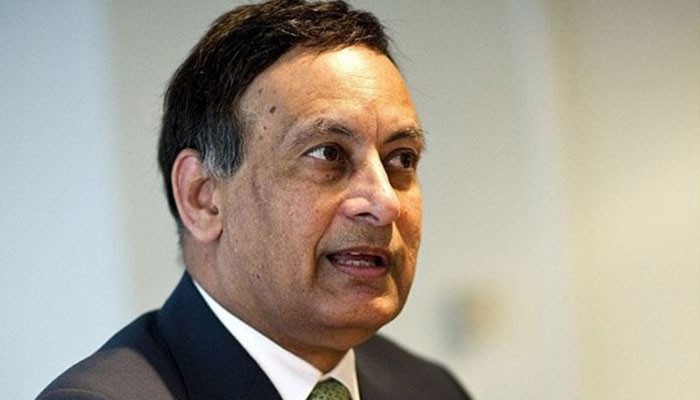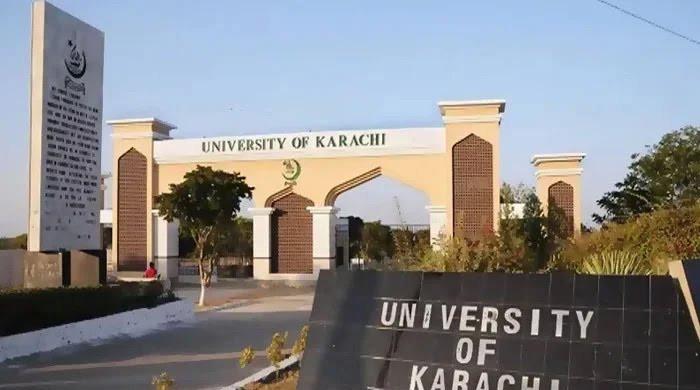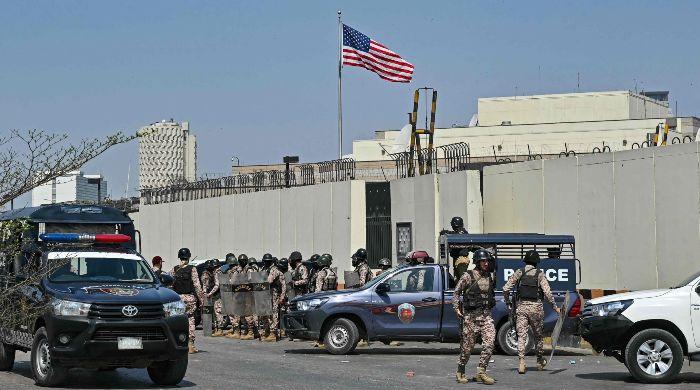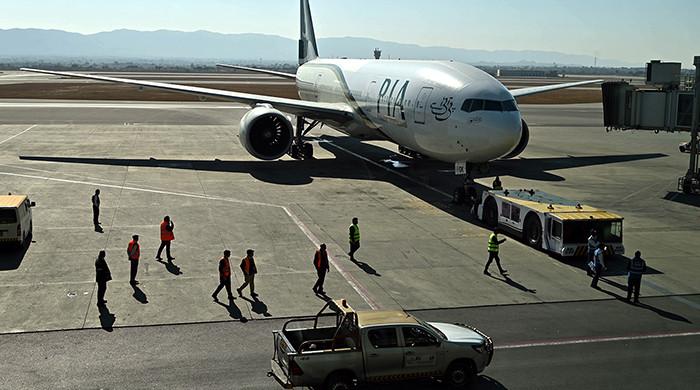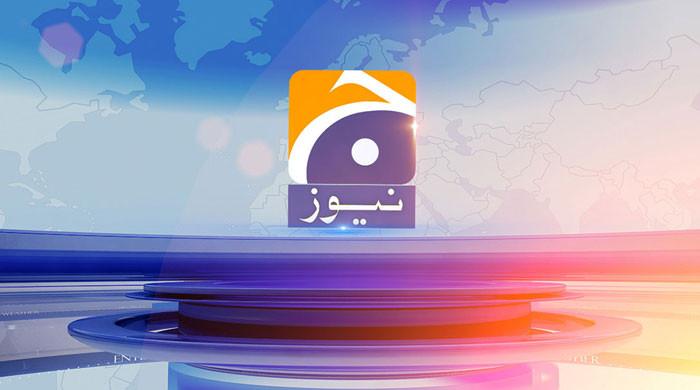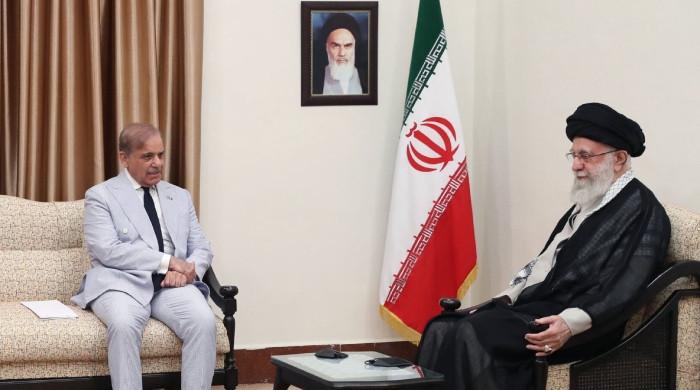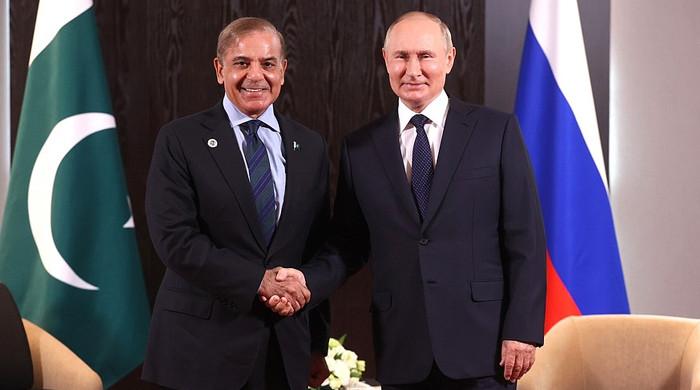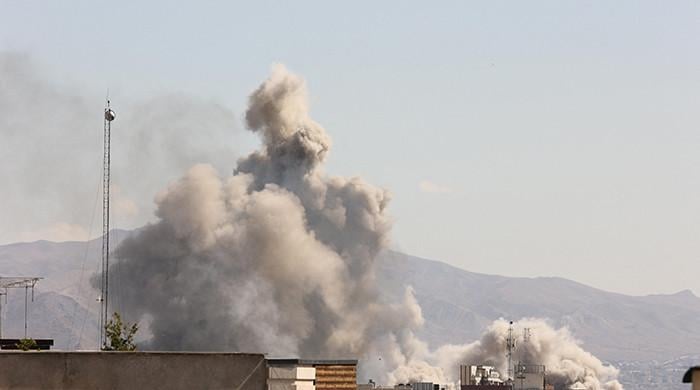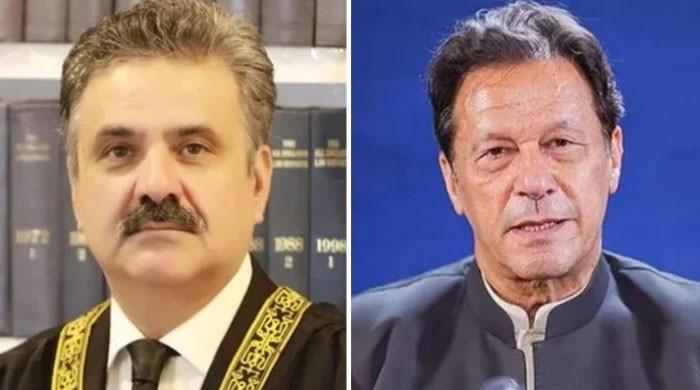Supreme Court issues arrest warrants for Husain Haqqani
CJP-led bench is hearing Memogate case against former Pakistan ambassador to US
February 15, 2018
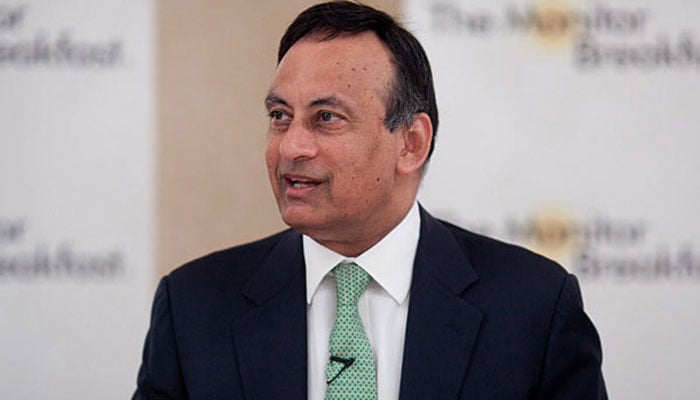
ISLAMABAD: The Supreme Court issued on Thursday arrest warrants for the production of former ambassador of Pakistan to the US, Husain Haqqani.
Chief Justice of Pakistan Justice Mian Saqib Nisar is hearing the Memogate case against the US-based former envoy.
As the hearing of the case went under way, the three-member bench was informed by Federal Investigation Agency (FIA) Director General Bashir Memon that they have started the process to nab Haqqani, adding that they have written to Interpol to issue red warrants.
Responding to reports of the warrants, Haqqani stated on Twitter that it was "sad that highest court of Pakistan persists with such antics for local TV news coverage. SUch political 'warrants' have not been honored abroad in the past, won't work now".
The Memogate scandal erupted in 2011 when Pakistani-American businessman Mansoor Ijaz claimed to have received an 'anti-army' memo from Haqqani, the then-Pakistan envoy in Washington DC, for US joint chiefs chairman Admiral Mike Mullen.
At the last hearing of the case on February 8, the Supreme Court was assured by the additional attorney general (AAG) that all efforts will be made to bring back Haqqani.
Moreover, the apex court had directed secretaries of the interior and foreign ministers, as well as the FIA chief, to furnish a report on Haqqani's return in one week.
Moreover, during the hearing, the recent statement of Haqqani terming the Memogate proceedings a 'political stunt' was read out.
On January 29, while hearing a case related to voting rights of overseas Pakistanis, Chief Justice Nisar had summoned details of the Memogate case.
In a statement reported on Feb 5, Haqqani said there were four chief justices after chief justice Iftikhar Chaudhry but none touched the case, adding that six years ago a nine-member bench had heard the case and wondered why just a three-member bench is taking it up now.
"It has been six years since I submitted a review petition to correct legal mistakes in the case. Will the court hear this case too?" he wondered.
Moreover, in a likely reference to Chief Justice Nisar, Haqqani claimed he will not come to Pakistan on "Baba Rehamtay's" direction, as his orders do not extend beyond Pakistan.
Haqqani and the memo controversy
The memo sent by Haqqani in 2011 allegedly mentioned a possible army coup in Pakistan following the US raid in Abbottabad to kill Osama bin Laden.
It sought assistance from the US for the then-Pakistan Peoples Party (PPP) government for 'reigning in the military and intelligence agencies'.
A judicial commission tasked to probe the case had concluded that the memo was authentic and authored by the former envoy.
The commission said the purpose of the memo was to convince American officials that Pakistan's civilian government was 'pro-US'.
The scandal, taken to the Supreme Court by then opposition leader Nawaz Sharif and several others, had led to Haqqani's resignation and subsequent exit from the country as the hearing was under way.
In September last year, Haqqani told Geo News "Memogate was just media noise, which is why the case has never been decided by the Supreme Court. That it disrupted lives without a conclusion is a sad reflection on how things work in Pakistan. I have moved on".
Foreign Minister Khawaja Asif, in March 2017, called for a parliamentary commission to investigate Haqqani's claims in a Washington Post op-ed that his 'close ties' with the US enabled the bin Laden raid.
Asif also stated that the former envoy had left Pakistan on the promise that he would return, but never did.
Following the article's publication and subsequent media uproar, the PPP also accused Haqqani of "treason and maligning the country’s armed forces at the behest of anti-Pakistan elements”.
Most recently, on January 21, media reports stated that three FIRs were registered against Haqqani in two police stations of Kohat, Khyber Pakhtunkhwa for delivering hate speeches and writing against the armed forces and sovereignty of Pakistan.
